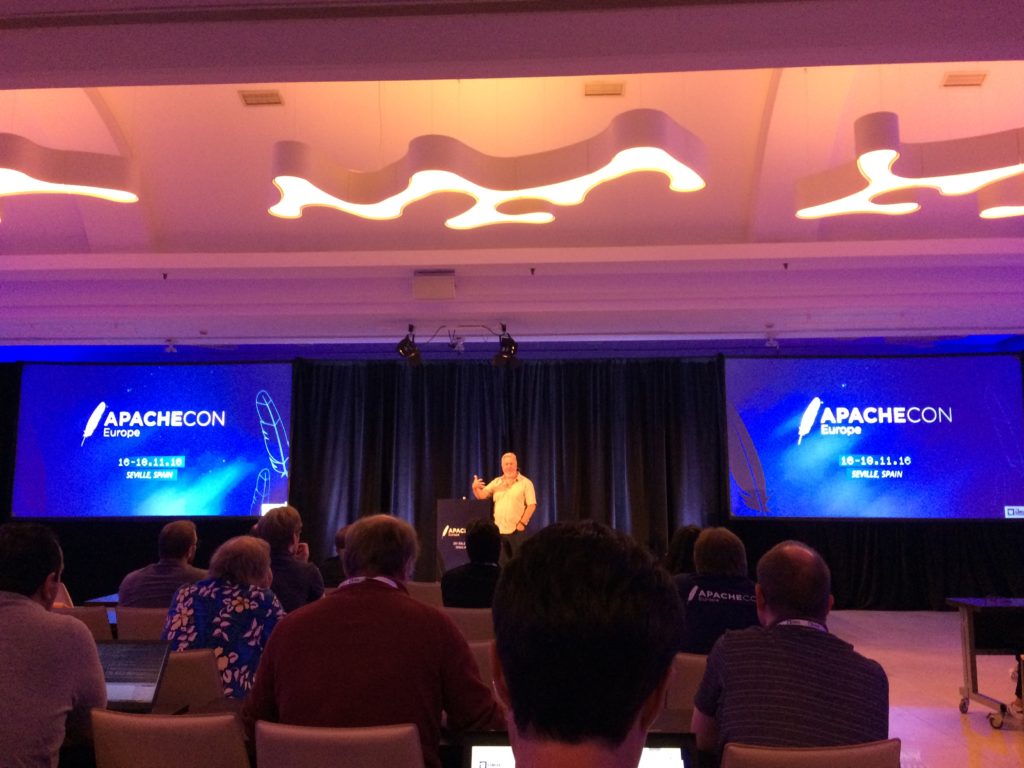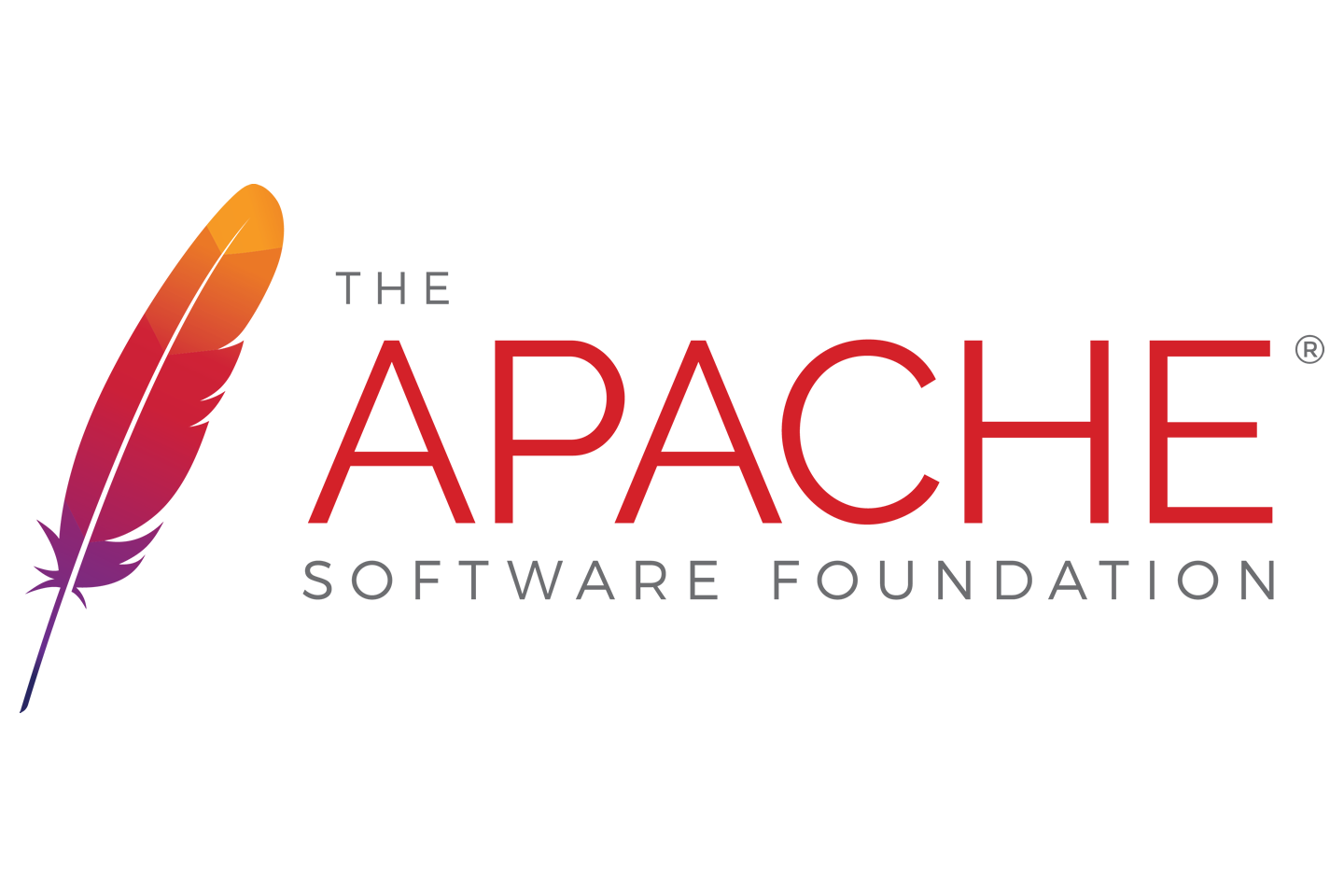board Apache is a public charity based in the US that facilitates the development of open source projects for the public good in a vendor neutral environment.
This week the Apache Software Foundation (ASF) hosted ApacheCon in Seville, Spain to celebrate not only it’s 17 year old ‘birthday’ but to further instill this open source community’s core principles that have been with it since the beginning: the ‘Apache Way’.

The Apache Way has been firmly ingrained into the running of the open source community over the last two decades.
It is the fundamental reason, according to people Information Age spoke to at ApacheCon, for the success and growth Apache has experienced over the years.
Apache’s growth
There have been no signs Apache will stop growing. The open source software has expanded at an unprecedented rate and is, for example, running on 67% of all web servers in the world.
>See also: Top 8 trends for big data in 2016
What is behind this growth? Jim Jagielski, a member of the ASF board of directors suggested some reasons during his keynote speech on the Wednesday of ApacheCon.

The software is not defined by a temporary alliance of business leaders. “Business interest and strategies change and it is not good to be dependent on this.”
Of course the community still value the resources and infrastructure that businesses give to ASF, but there is no undue influence, or ulterior motives on the platform.
“We are defined by the people who do the work, not by the people who pay their salary. Community matters at the ASF,” said Jagielski.
Apache is a 501(c)(3), which is defined as ‘a public charity’, while most other foundations are 501(c)(6), which is defined as ‘a business league’.
As a result the board of Apache does not get involved. “It represents a legal shell around Apache projects,” said Jagielski.
Indeed, Mark Thomas, recently appointed member of the ASF board of directors and Tomcat Project Management Committees told Information Age “the board does not have a say on the technical direction of projects”.
The idea of everyone being a leader where a consensus rules is very much the Apache Way.
The Apache way
The Apache Way is based on an idea of merit and honesty. It promotes a ‘virtuous cycle’, or sustainable community, that brings in more people.
Thomas defined the Apache way as “community over code”.
“A good community can always overcome bad code, over time they can always fix the code,” he told Information Age. “Great code will not save a bad community.”
>See also: Royal Mail’s data journey
It is this sense of community and collaboration that has seen Apache grow from working on one project to 294. It now has 10 project committees and 175 committees.
Seven projects have retired, which according to Jagielski “is not a bad thing”.
It is very in keeping with Apache’s culture, a cycle of innovation and creativity. Sometimes projects have their day, while others rise through the community’s incubator programme.
Apache’s incubator programme
The incubator programme is designed for new projects that want to become an Apache project.
Currently there are 59 active projects enrolled on the incubator programme, with 30 new ‘podlings’ set to join.
The point of the Apache incubator is to learn the Apache Way then graduate to a top-level project.
Again this idea of inclusion through a ‘graduate programme’ is representative of the community ties that are embedded into the philosophy of Apache.
Of those in the incubator programme, however, only 7 have graduated.
Compared to the number enrolled this is low and not an issue either Jagielski or Thomas skirted over from during the speech or the interview.
Jagielski highlighted that it was a concern that good projects “are getting stuck in this incubation phase”.
>See also: OpenStack update: it’s making great strides into enterprise
Thomas suggested that because the course is so popular there is a problem of scale. “Can we actually manage that many in the incubator?”
The solution, he went on to say, lies in finding “more experienced Apache people to help mentor those projects”.
The culture
Apache’s language is not a monoculture. While 59.4% of the projects are associated with Java, which is simply “the nature of the beast” as Jagielski puts it, there are blends of other languages that make up the other 40% (like Ruby and Python).
It is neither a topic monoculture and has a variety of categories. 22.3% of ASF projects are categorised under library (a collection of precompiled routines that a program can use).
Network servers make up 9.3% and big data makes up 8.6% (“surprisingly” according to Jagielski) of ASF projects.
The whole ethos boils down to investing in resources not cash: “we are defined by people doing work, so we invest in people to improve a project”, said Jagielski.
Moving forward
Thomas made clear that the way Apache is run, from its ethos to its management processes has remained the same over the last 20 years. What has evolved over time, however, is the scale of growth.
“Things have changed in terms of how we manage that moving forward and how we organise things.”
“For example, when I joined infrastructure was a handful of volunteers, now we have paid full-time infrastructure staff. I used to be able to name every single server we owned and what services were running on them, now I can just about name the data centres we’ve got our servers in.”
>See also: Is Hadoop’s position as the king of big data storage under threat?
In terms of moving forward it is an interesting proposition because the board doesn’t set the direction for the projects.
What both Thomas and Jagielski stressed was that expansion and growth are the way forward.
“On the board, therefore, we are thinking about what structures do we need to put in place to support that growth.”
Ultimately Apache’s survival and continued success lies in its open source foundation. It naturally self preserves and is business friendly.
ASF certainly acts as a catalyst for innovation through collaboration, by building communities that focus on common problems.
This, combined with the Apache way, differentiates the open source software in the marketplace.







